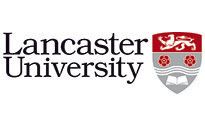
Transparent Management and Leadership Techniques - Case Studies
Course ID: 2507142101097EGI
Course Dates : 14/07/25 Course Duration : 5 Studying Day/s Course Location: Amsterdam, Netherland
Language: Bilingual
Course Category: Professional and CPD Training Programs
Course Subcategories: Leadership and Management Excellence
Course Certified By: * Projacs Academy
* Professional Training and CPD Programs
Certification Will Be Issued From :
KSA
Course Fees: £4,867.80
Vat Not Included in the price. VAT may vary depending on the country where the course or workshop is held.
Click to Pay
Date has passed please contact us Sales@e-s-hub.com
Course Information
Introduction
The modern workplace demands leaders who can foster trust, accountability, and collaboration within their teams. Transparent management and leadership techniques have emerged as a cornerstone of effective organizational practices, addressing the growing need for openness in decision-making and communication. This course delves into the principles of transparency, exploring how they can be applied to enhance team dynamics, improve performance, and build sustainable organizational cultures. Rooted in established theories such as Transformational Leadership and Servant Leadership, the program emphasizes actionable strategies that align with contemporary industry trends.
Leaders today face significant challenges, including resistance to change, lack of employee engagement, and misaligned organizational goals. These issues often stem from opaque processes or inconsistent communication, which can erode trust and hinder productivity. For instance, a recent case study of a multinational corporation revealed that unclear communication during a restructuring phase led to a 30% drop in employee morale and a corresponding decline in output. By addressing these gaps, this course equips participants with tools to navigate complex leadership scenarios while promoting clarity and inclusivity.
Mastering transparent leadership techniques offers profound benefits for both individuals and organizations. Leaders who adopt transparency report higher levels of employee satisfaction, improved retention rates, and enhanced innovation. From an individual perspective, professionals gain credibility and influence by demonstrating integrity and accountability. Organizations, on the other hand, benefit from streamlined operations, reduced conflicts, and stronger stakeholder relationships. A notable example is Patagonia, whose commitment to transparent supply chain practices has not only strengthened its brand reputation but also driven customer loyalty.
The course draws upon frameworks such as Situational Leadership and Emotional Intelligence to provide a robust foundation for understanding transparency in leadership. Participants will explore real-world examples, such as the success of Buffer—a tech company renowned for its radical transparency policies—and analyze how these practices translate across industries. The integration of theoretical insights with practical applications ensures that learners develop a nuanced understanding of how transparency can be tailored to diverse contexts.
Moreover, the course addresses emerging trends in remote and hybrid work environments, where transparency becomes even more critical. Leaders must navigate digital communication platforms effectively, ensuring that all team members feel informed and valued. Anecdotal evidence from a global consulting firm highlights how implementing regular virtual town halls significantly improved cross-functional collaboration and reduced feelings of isolation among remote workers. Such examples underscore the adaptability of transparent leadership techniques in evolving workplace settings.
Ultimately, this course serves as a catalyst for personal and professional growth, empowering participants to lead with authenticity and purpose. By examining case studies and engaging in interactive discussions, attendees will gain practical insights into fostering transparency at every level of their organization. Whether you are an aspiring leader or a seasoned executive, this program offers invaluable tools to drive meaningful change and achieve long-term success.
Objectives
By attending this course, participants will be able to:
Analyze the impact of transparency on organizational culture and employee engagement using relevant case studies.
Evaluate existing leadership practices to identify areas for improvement in terms of openness and accountability.
Design communication strategies that promote clarity and inclusivity in diverse workplace settings.
Implement feedback mechanisms that encourage continuous dialogue and mutual trust within teams.
Apply ethical decision-making frameworks to resolve conflicts and address stakeholder concerns transparently.
Assess the role of technology in facilitating transparent interactions in remote and hybrid work environments.
Develop a personalized action plan to integrate transparent leadership techniques into daily managerial routines.
Who Should Attend?
This course is ideal for:
HR managers seeking to enhance organizational culture through transparent policies.
Team leaders aiming to improve communication and collaboration within their teams.
Consultants and coaches specializing in leadership development and organizational transformation.
Executives responsible for driving strategic initiatives and fostering accountability.
Educators and trainers interested in incorporating transparency principles into leadership curricula.
These groups will find the course valuable due to its focus on bridging knowledge gaps and providing practical solutions to common leadership challenges. While prior experience in leadership roles is beneficial, the course is structured to accommodate intermediate learners who possess foundational knowledge of management concepts. Advanced practitioners will appreciate the opportunity to refine their skills through advanced case studies and peer discussions.
Training Method
• Pre-assessment
• Live group instruction
• Use of real-world examples, case studies and exercises
• Interactive participation and discussion
• Power point presentation, LCD and flip chart
• Group activities and tests
• Each participant receives a 7” Tablet containing a copy of the presentation, slides and handouts
• Post-assessment
Program Support
This program is supported by:
* Interactive discussions
* Role-play
* Case studies and highlight the techniques available to the participants.
Daily Agenda
The course agenda will be as follows:
• Technical Session 08.30-10.00 am
• Coffee Break 10.00-10.15 am
• Technical Session 10.15-12.15 noon
• Coffee Break 12.15-12.45 pm
• Technical Session 12.45-02.30 pm
• Course Ends 02.30 pm
Course Outlines
Foundations of Transparent Leadership
Introduction to transparency in leadership: Key principles and benefits.
Overview of relevant leadership theories (e.g., Transformational Leadership, Servant Leadership).
Case study analysis: Lessons from organizations excelling in transparency.
Identifying barriers to transparency in traditional management models.
Day 2:
Building Trust Through Open Communication
Strategies for fostering honest and inclusive communication.
Role-playing exercises: Practicing difficult conversations with transparency.
Tools for creating feedback loops and encouraging open dialogue.
Ethical considerations in transparent decision-making.
Day 3:
Transparency in Action – Practical Applications
Developing transparent policies for recruitment, promotions, and evaluations.
Workshop: Crafting clear and concise messages for diverse audiences.
Leveraging technology to enhance transparency in remote teams.
Group activity: Solving real-world challenges using transparent approaches.
Day 4:
Navigating Challenges and Resistance
Addressing skepticism and resistance to transparency initiatives.
Conflict resolution techniques rooted in transparency and empathy.
Case study review: Overcoming obstacles in implementing transparency.
Measuring the impact of transparency on team performance and morale.
Day 5:
Sustaining Transparency in Leadership
Creating a roadmap for embedding transparency into organizational DNA.
Personalized action planning: Applying course learnings to your role.
Peer presentations: Sharing insights and best practices.
Closing session: Reflections and next steps for continued growth.



















































